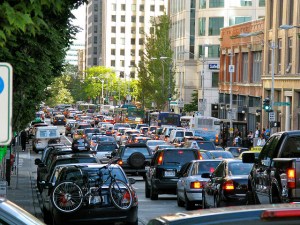Seminar: Personal Mobilities, Contemporary Cities, and Urban Life
CUNY Institute for Urban Systems presents …
Personal Mobilities, Contemporary Cities, and Urban Life
A visiting scholar seminar by Dr. Aharon Kellerman, Professor Emeritus of Geography, University of Haifa; President-Designate of the new Academic College for Israel
In his most recent book, Aharon Kellerman studies contemporary cities and their residents from the perspective of the growing number of what he calls personal mobilities. These include not only the corporeal means of movement (walking, cycling, driving) but the virtual mobilities offered by the increasing number and form of telecommunications technologies.
The new technologies of mobility affect cities and urbanites differently from their predecessors. The physical and spatial structures of cities were changed to adapt to the automobile, but contemporary mobile communications technologies adapt themselves to urban physical structures.
While not changing the shape of cities, new physical and virtual mobilities have been responsible for changing the traditional daily and weekly rhythms of cities. They have also allowed for more participation in the urban and global systems of social, spatial, and business networks. In these, and other ways, urban systems and personal mobilities tend to reinforce each other and put the lie to the thought that the technological age will mark the end of cities.
About the Speaker
Aharon Kellerman is professor emeritus of geography at the University of Haifa and the president-designate of the new Academic College for Israel (now in construction). He serves as chair of both the International Geographical Union’s Commission on the Geography of the Information Society and the Israeli National Geography Commission.
Dr. Kellerman’s publications include over 60 refereed articles, 40 book chapters, five monographs, and four books. For more than ten years, his scholarly work has focused on the geography of information and communications technologies. In 1993, he wrote Telecommunications and Geography, followed by The Internet on Earth: A Geography of Information in 2004 and Personal Mobilities in 2006.
Dr. Kellerman is a native of Israel and studied at the University of Haifa and Hebrew University. He received his doctoral degree in geography from Boston University. He served as a professor of geography and as vice president of administration at the University of Haifa. He has also been a visiting professor at Oxford University, Bar-Ilan University, University of Miami, University of Maryland, and Boston University.
He has earned many grants and awards from a variety of sources including the Fullbright Foundation, the Moshkovitz Foundation, the Burda Foundation, and the Association of American Geographers.


